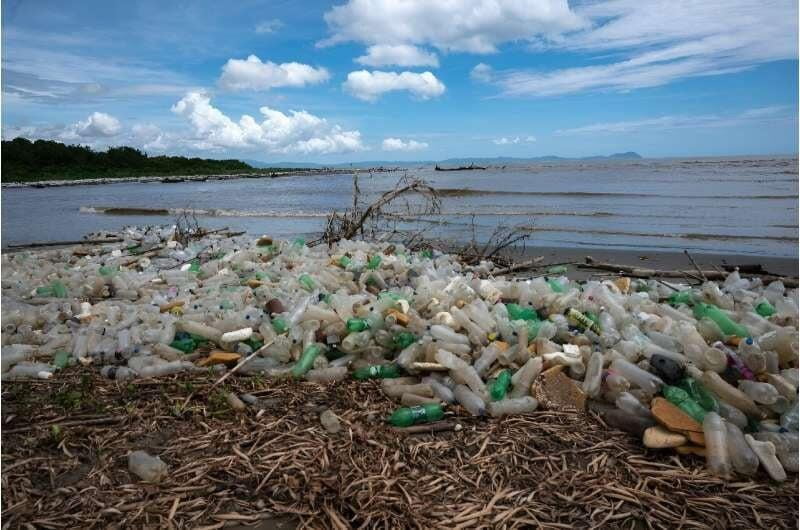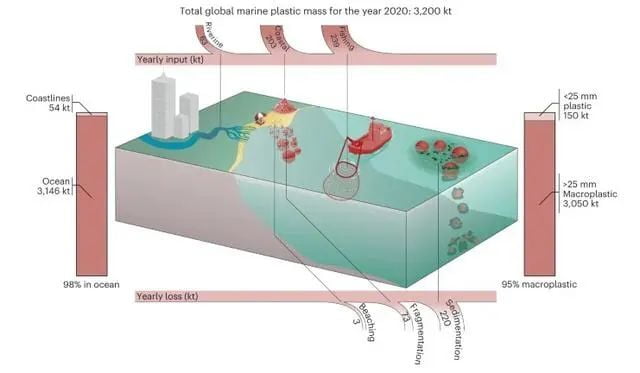August 8, 2023 A new study published in Nature - Earth Sciences suggests that there is less plastic trash in the oceans than scientists previously thought, but that this trash could last a long time.
Modeling studies estimate that pieces of plastic larger than 25 millimeters make up more than 95 percent of the plastic floating in the ocean.

While most plastic particles in the ocean are small, the total mass of these microplastics - defined as less than 5 millimeters - is relatively low.
According to the study, published in the journal Nature Geoscience, the preponderance of larger floats suggests that the total amount of plastic in the ocean is "much lower" than previously thought.
It is estimated that there are more than 25 million tons of plastic pollution in the oceans, of which 250,000 tons are floating on the surface. However, studies have shown that the amount of plastic on the surface of the ocean is much higher, about 3 million tons. Plastic floats in large chunks (garbage belts), which helps with cleanup efforts.

Marine plastics may survive longer than expected.
Large pieces of plastic floating on the surface are easier to clean than microplastics, Erik van Sebille of Utrecht University in the Netherlands, a co-author of the study, said in a statement."
These results are based on 3D models of the ocean, using a large number of observations and measurements obtained from surface waters, beaches and the deep ocean from 1980 to 2020.
Immediate action
The model also found that less new plastic flows into the oceans each year than previously thought - about 500,000 tons instead of 4 million to 12 million tons - mainly from shorelines and fishing activities.
However, the combination of more surface plastics and fewer new plastics suggests that garbage may stay in the ocean much longer than previously thought. Only 10 percent of plastics are likely to degrade or sink within two years.
Mikael Kaandorp, the study's leader, said, "This means that it will take longer to see the effects of measures to combat plastic waste."
He added, "If we don't act now, the effects will last much longer."
The amount of plastic pollution in the world's oceans continues to grow. It is estimated that the input of floating plastics into the oceans is increasing at a rate of 4% per year.
The study's authors say that residual plastic waste could double in 20 years without further mitigation and cleanup.
Concerns about the impact of plastics on the environment and human well-being have surged in recent years.
The United Nations Environment Programme estimates that plastic debris kills more than 1 million seabirds and 100,000 marine mammals each year.
The new study comes as the world awaits the first draft of the highly anticipated United Nations international treaty to combat plastic pollution, which is expected in November.

